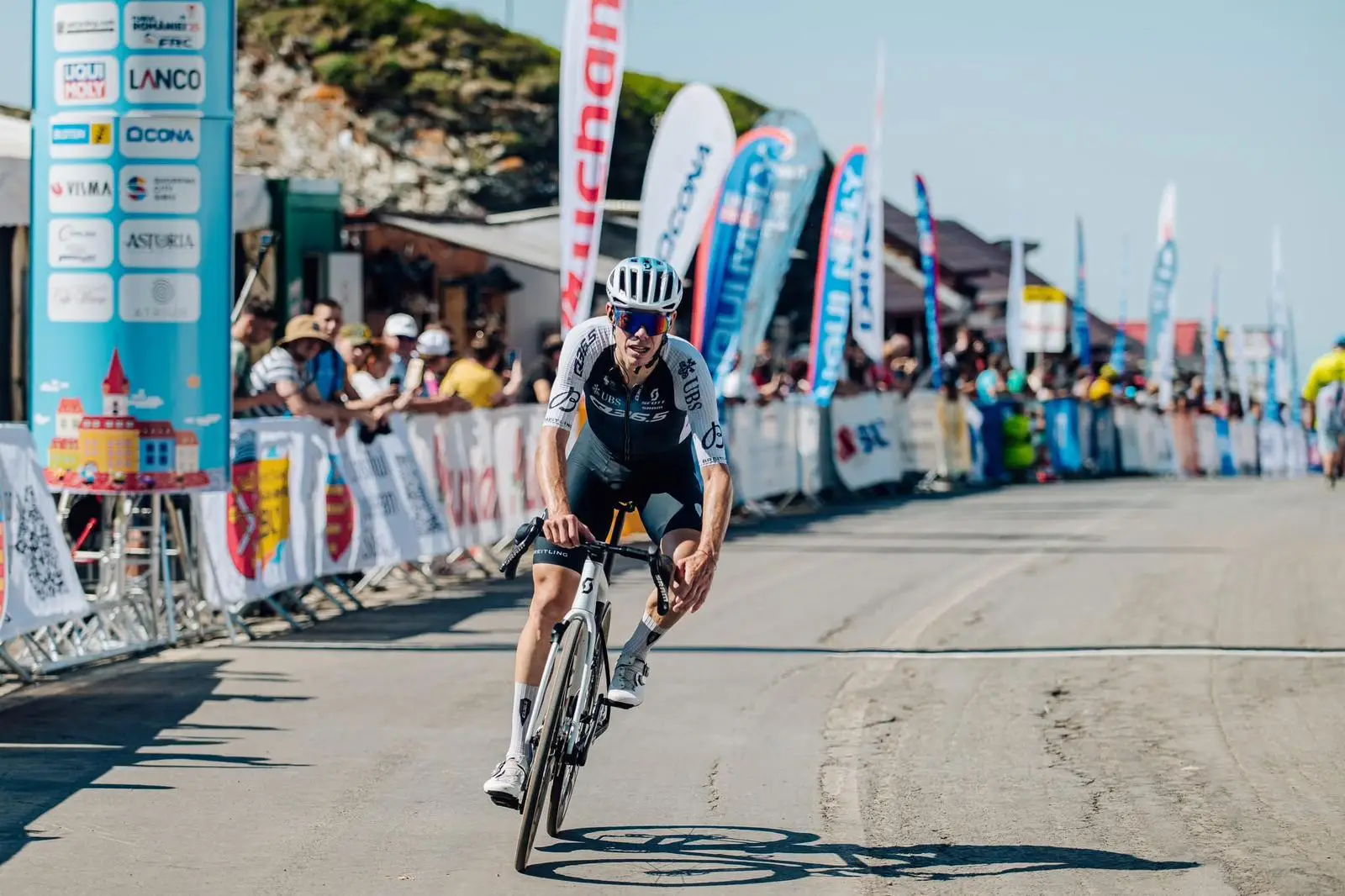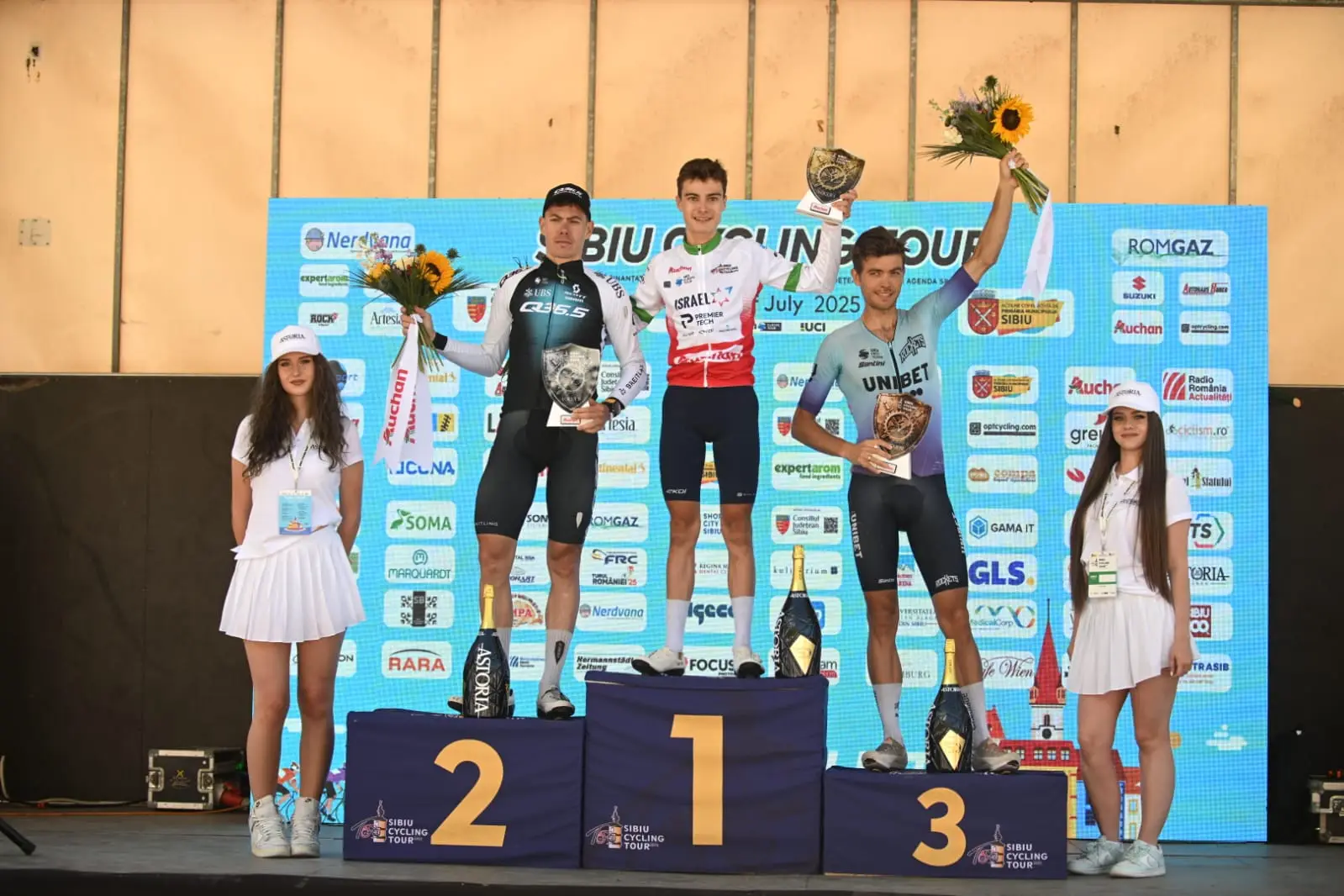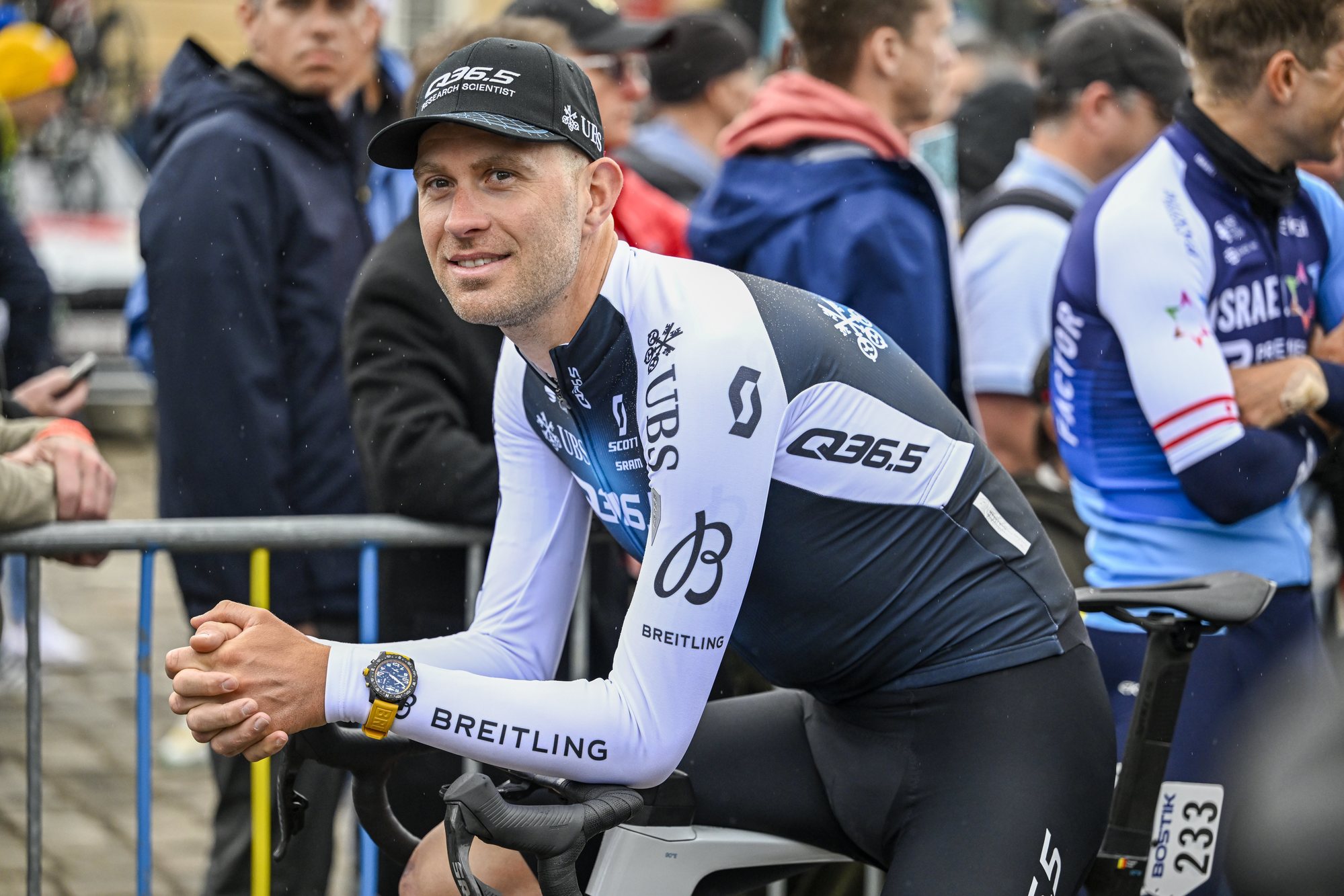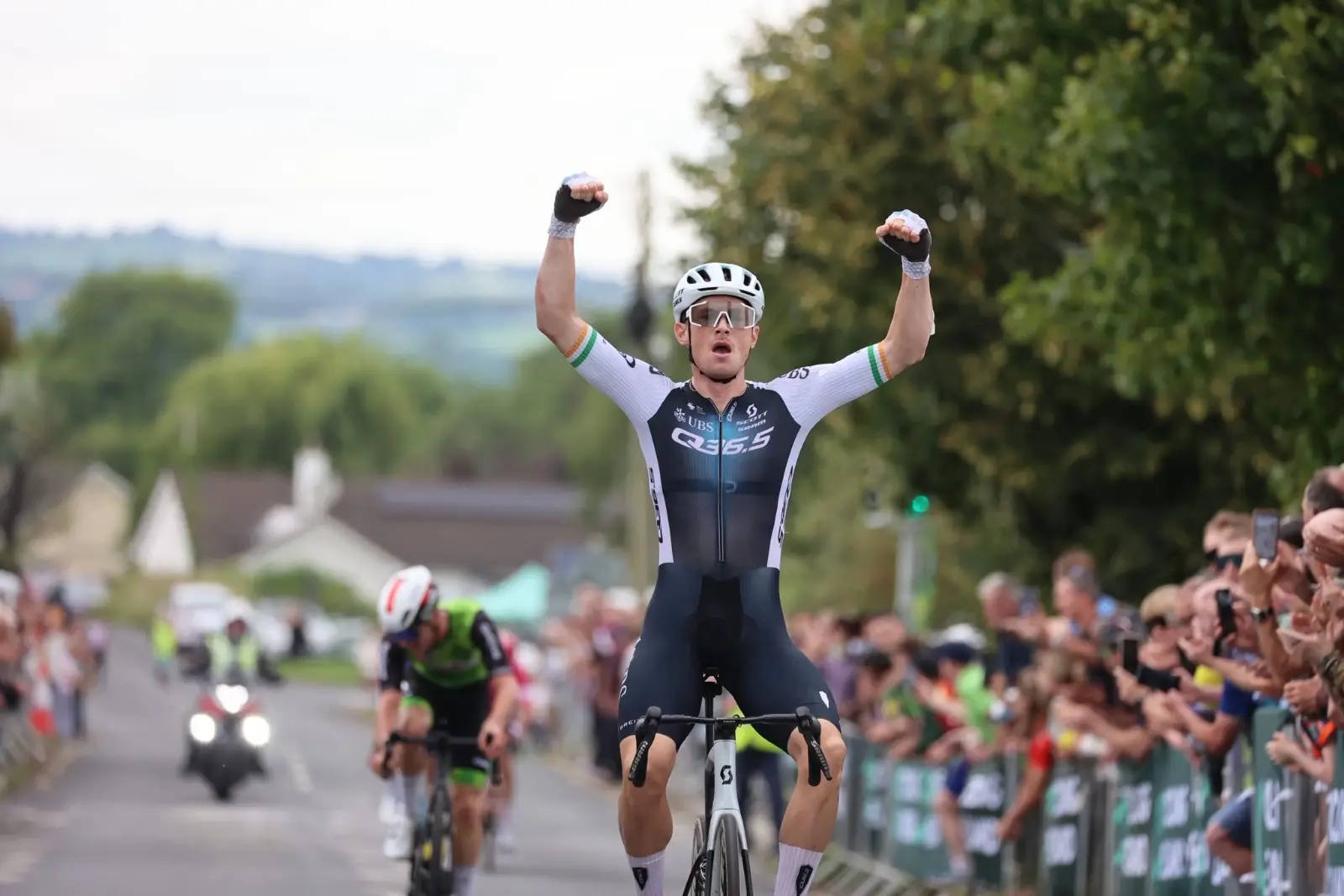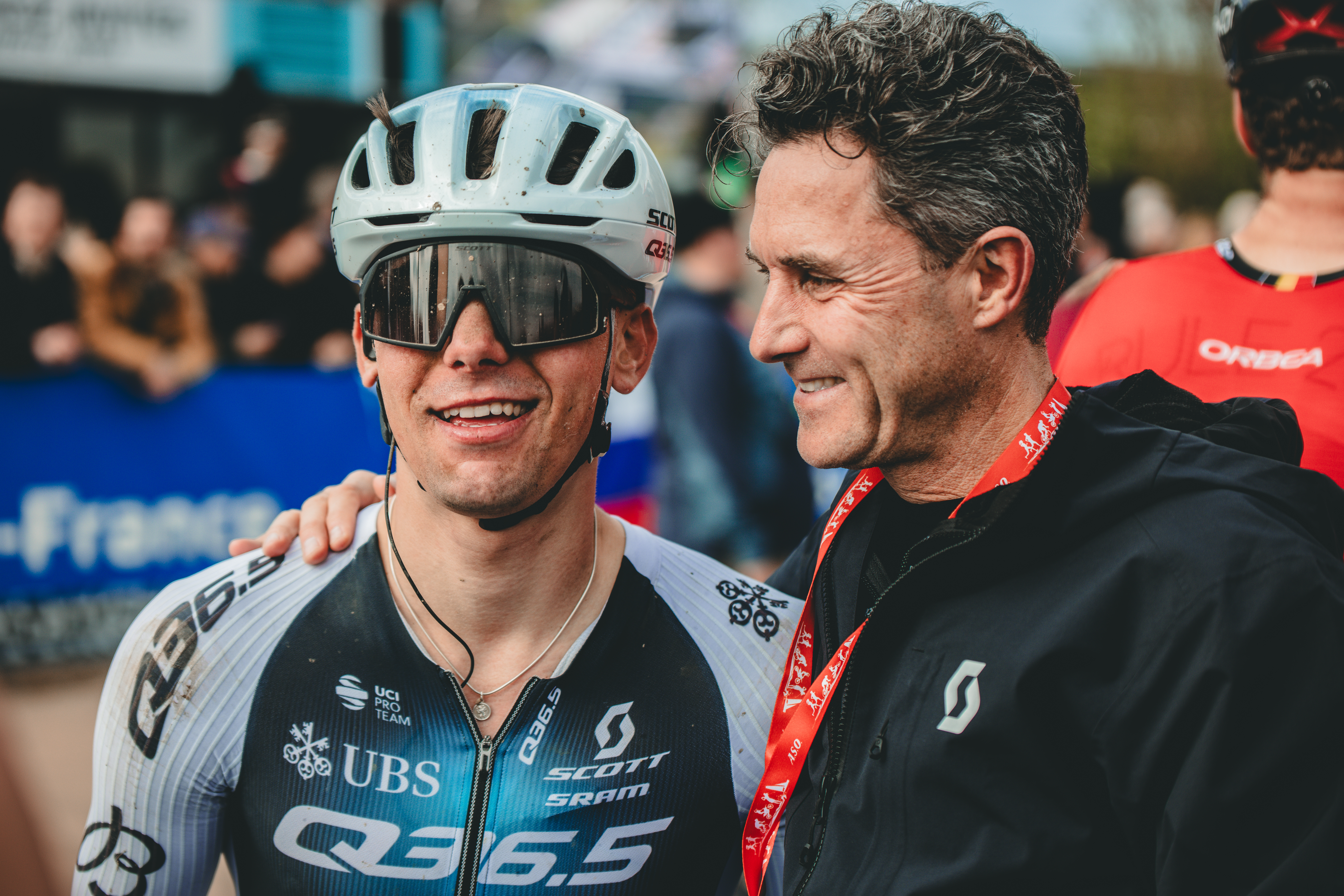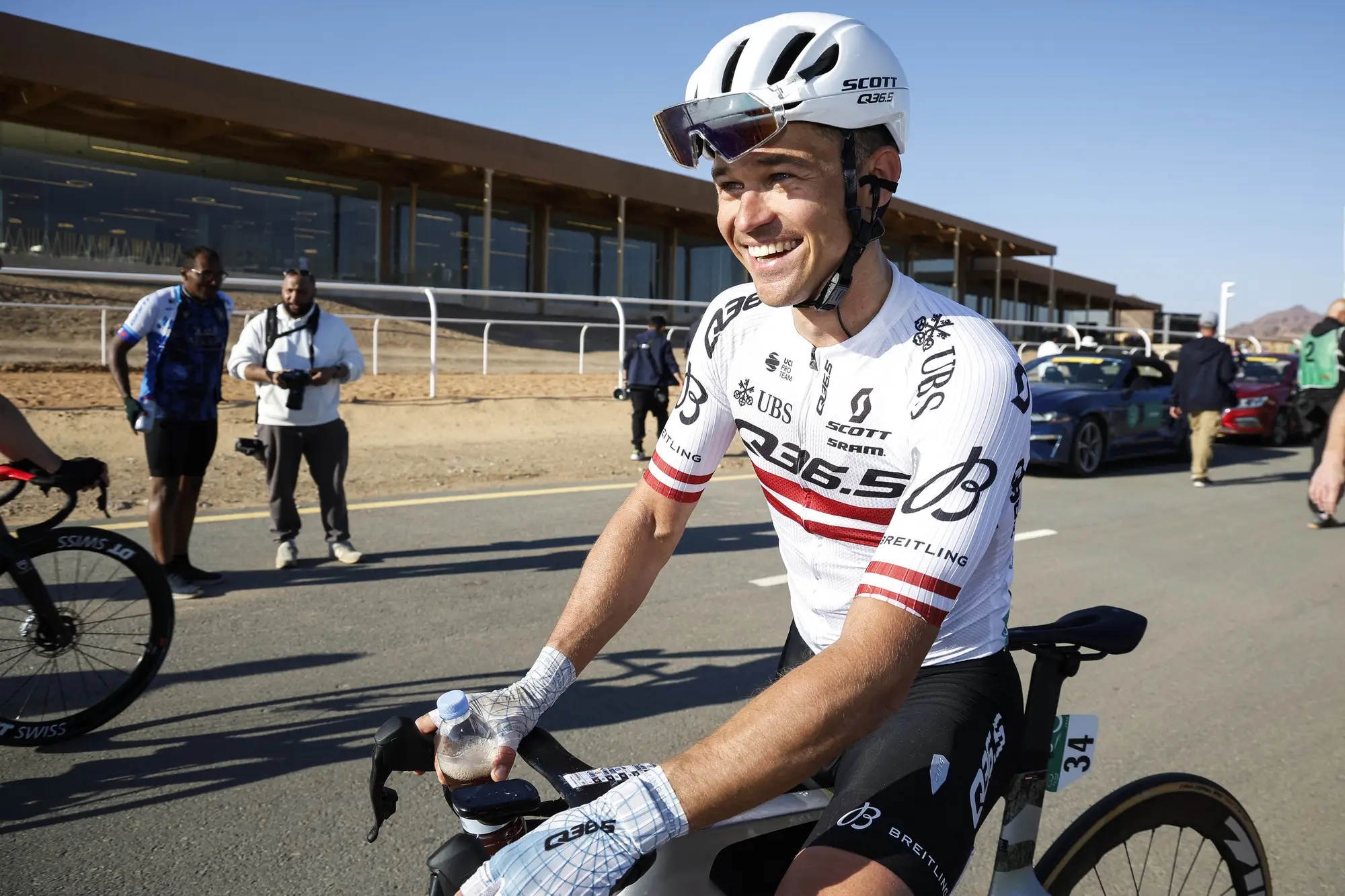Sustainability Series
Racing Towards Sustainability
In an era marked by a growing awareness of environmental challenges, professional cycling, a sport steeped in tradition and competition, finds itself at a crossroads. We, the Q36.5 Pro Cycling Team, are navigating this terrain with an eye towards sustainability. This mission is not just about cycling and sponsorship demands; it’s about how a sport can confront and adapt to the pressing environmental concerns of our times.
17 January 2024.
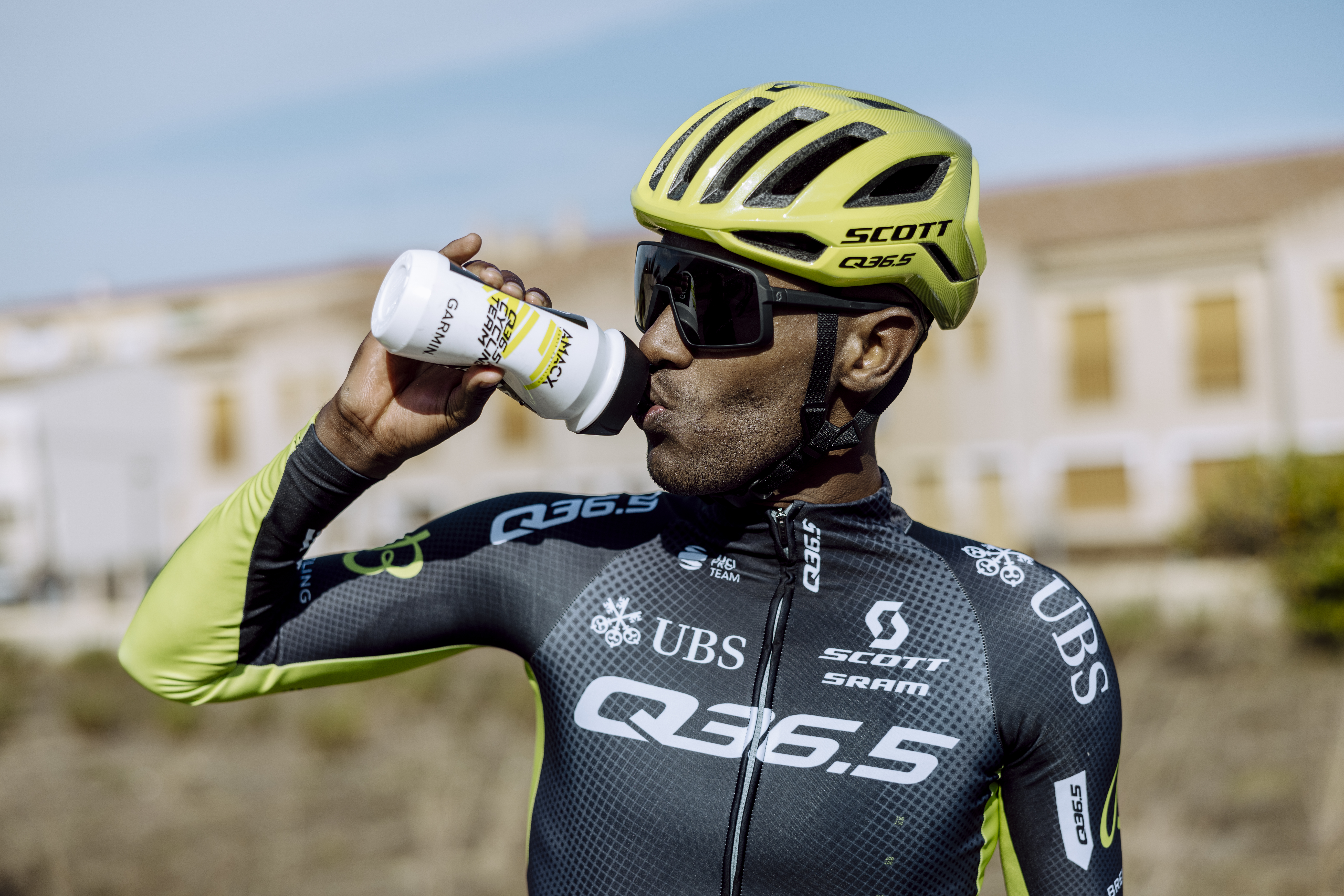
Professional cycling, like many sports, has its environmental drawbacks. The use of countless single-use plastic water bottles (bidons), the carbon footprint of international tours, and the consumption of several resources, paint a picture of a sport in need of an ecological overhaul. It is within this context that our efforts at Q36.5 Pro Cycling Team emerge as both necessary and commendable.
"Rethink, Refuse, Reduce, Responsible, and Recycle"
Under the stewardship of Gunther Landrie (Head Soigneur) and our entire team, Q36.5 Pro Cycling Team has embarked on a journey of environmental consciousness. Our approach, grounded in the realities of professional cycling, adopts a pragmatic yet impactful stance. The five pillars – Rethink, Refuse, Reduce, Responsible, and Recycle – form the backbone of our strategy, offering a blueprint for change.
For example, a notable aspect of our strategy is the reuse of bidons, a seemingly small act that speaks volumes about our commitment to reducing waste. This initiative, though modest in scope, challenges the norms of a sport where disposability has long been the standard. Each reused bottle represents a step away from the single-use culture and towards a more sustainable practice.
At our recent 11-day training camp, we brought 400 bidons for all 27 of our riders. Traditionally, we would have used 1,782 bottles (6 bottles per rider per day), but by reusing bottles, we significantly reduced this number. Producing a single plastic bottle requires around 3 liters of water, 0.5 kWh of electricity, and contributes to the emission of five ounces of CO2 for every ounce of PET used. This means that traditionally, we would have indirectly consumed around 5,346 liters of water, 891 kWh of electricity, and contributed significantly to CO2 emissions just for bottle production alone. Additionally, producing these bottles would have required approximately 891 kilograms of plastic.
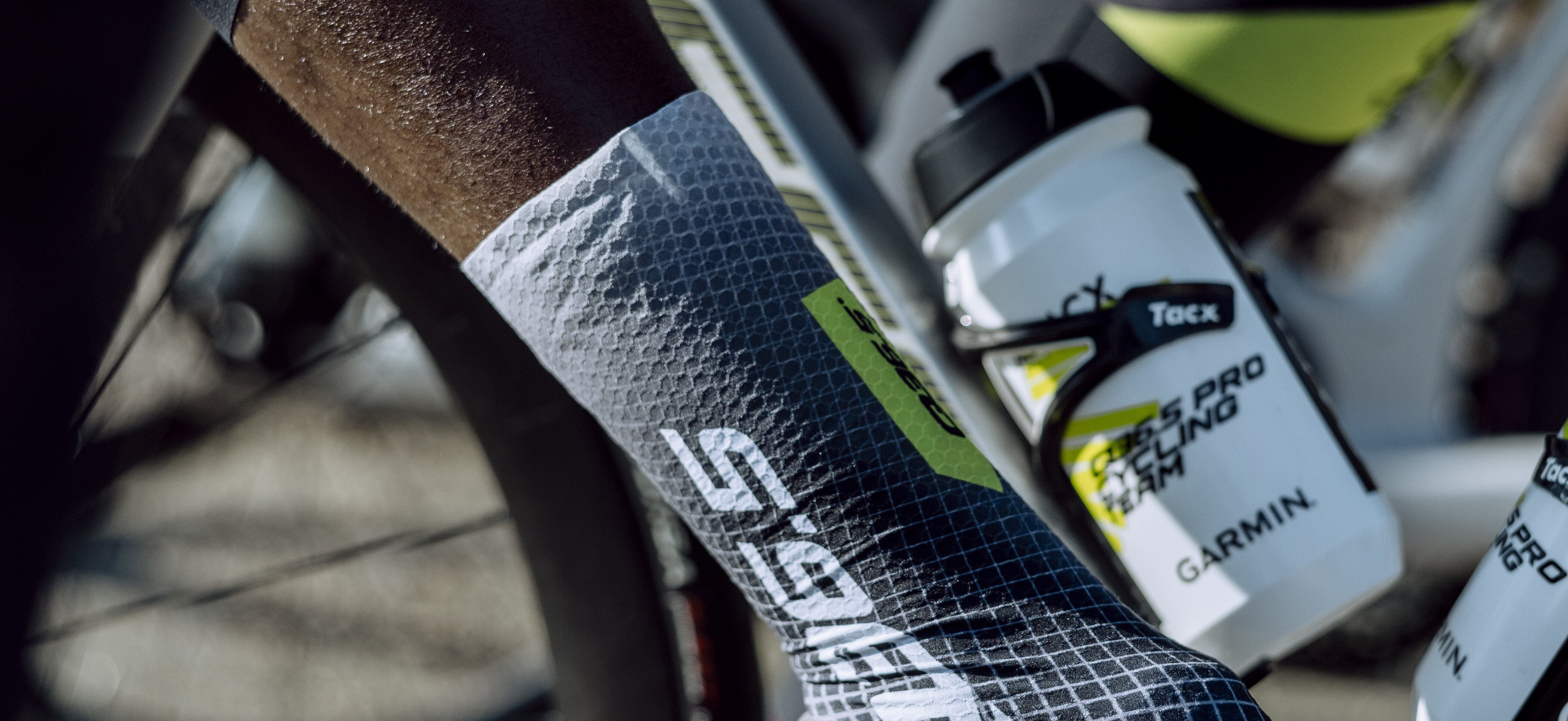
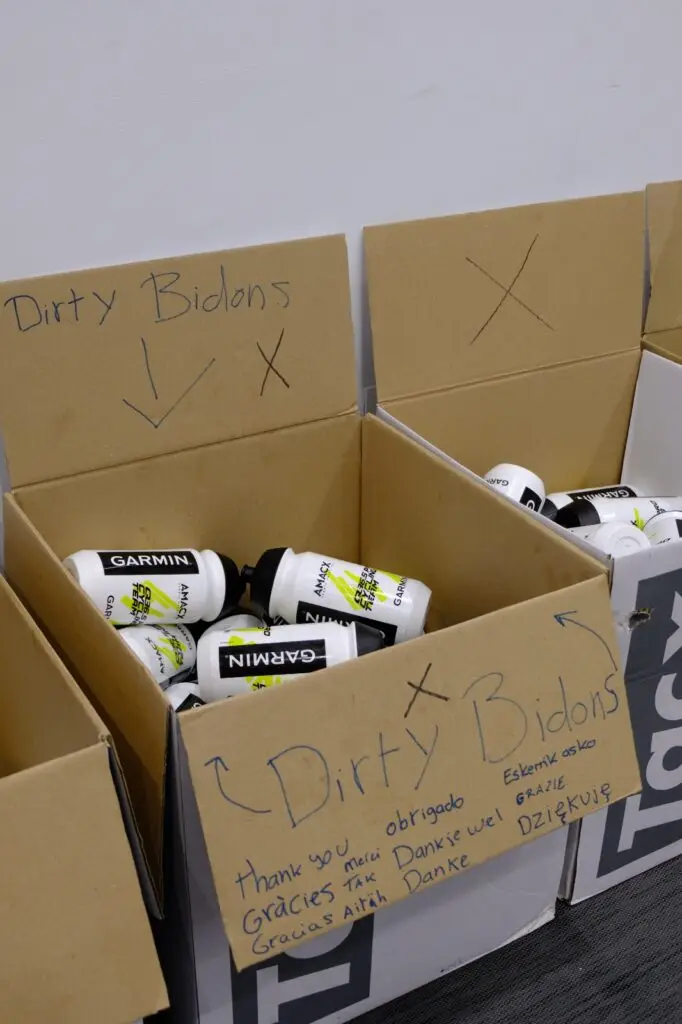
By reusing bottles, we also made financial savings and reduced our carbon footprint. We estimate a saving of around EUR 2,000 in bottle costs and a reduction of our carbon credits by approximately 500 kg CO2e for this one event. These savings are significant when scaled up over a season of racing and training.
Our approach illustrates how targeted actions can have broader implications. Our decision to reuse bottles, paired with our wider sustainability goals, sends a powerful message to the world of professional cycling and its fans. It’s a demonstration of how environmental responsibility can be integrated into the fabric of a sport, influencing policies, practices, and perceptions.
Our journey towards sustainability is more than a series of actions; it’s a narrative about the potential for transformation in the face of modern challenges. Our story is a microcosm of a larger, global conversation about responsibility, stewardship, and the role sports can play in shaping a more sustainable future. In our pursuit of both athletic and environmental excellence, Q36.5 Pro Cycling Team offers a vision of what’s possible when commitment and action converge.


